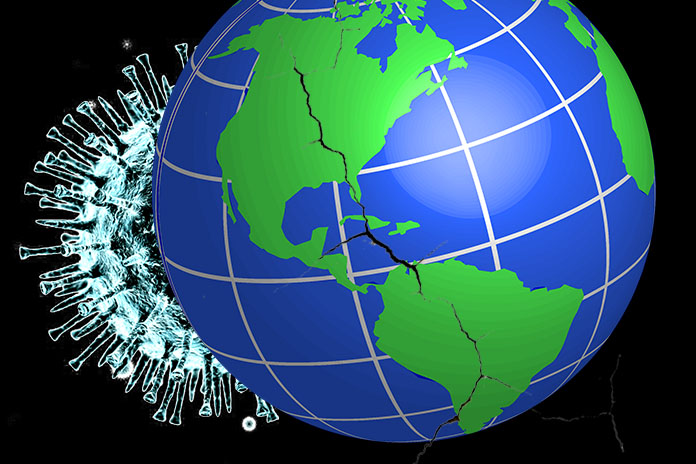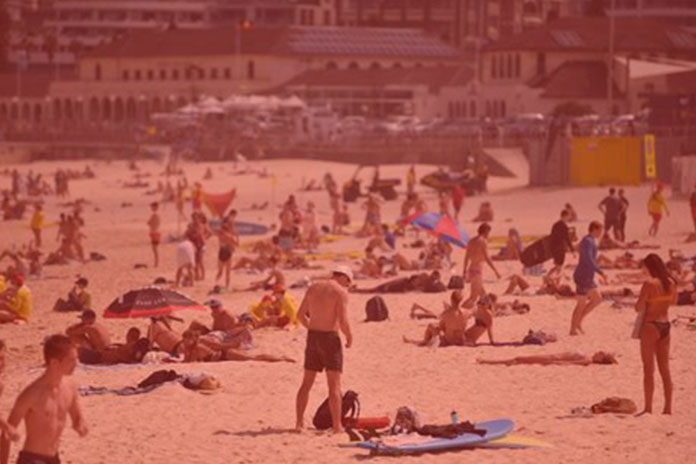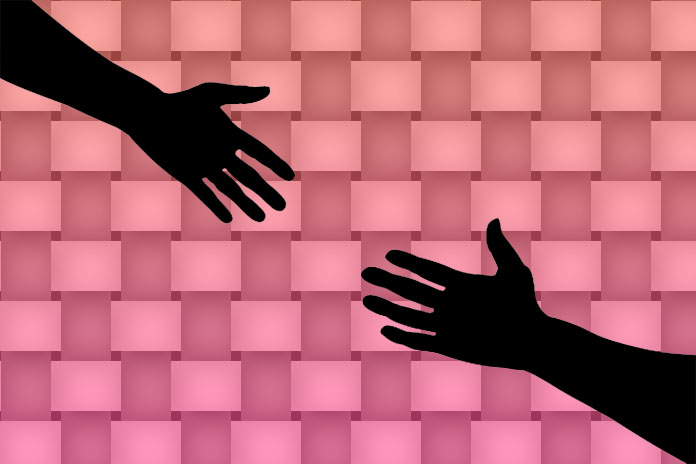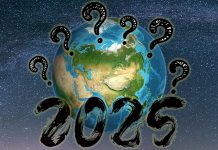
IN THIS accelerated world, where the existential threats of climate change, nuclear destruction, acute economic inequality and profound social injustice has been amplified, the plea of singer and activist Harry Belafonte echoes through our confused and volatile COVID-19-dominated lives, ‘What will shock us into action, what will ready us to face ourselves, to welcome ourselves into the future?’
Belafonte went on to say that a conspiracy need not be a few shady characters orchestrating bad deeds but is more likely to be the conspiracy of the culture, where an entire society facilitates collective action; or in our case, inaction.
ALSO WATCH: Skills To Guide You Out Of COVID-19
When Covid-19 struck and governments around the world had no option other than to support their people, the British Financial Times wrote: “Radical reforms, reversing the prevailing policy direction of the last four decades, will need to be put on the table. Governments will have to accept a more active role in the economy; they must see public services as investments rather than liabilities, and look for ways to make labour markets less insecure. Redistribution will again be on the agenda; the privileges of the wealthy in question. Policies until recently considered eccentric, such as basic income and wealth taxes, will have to be in the mix.”
After six months of the pandemic, I see little evidence that we have learnt any lasting lessons, become less materialistic, tempered our obsession with consumption or are willing to change our behaviour to something more enduring, just and humane. What I see more closely resembles the lead up to the French Revolution, when the aristocracy were well aware that people were fomenting an uprising and knew it could be avoided by being less greedy, by pivoting their behaviour, but instead said, ‘Let’s have a party!’
Environmental degradation, social and racial injustice, a global pandemic, the violence in American streets, gut-wrenching, back-breaking poverty for most of the planet’s people, species loss (Australia leads the world in this area), the devaluing of our artists and teachers, the complete collapse of meritocracy and a total indifference towards our elderly and most vulnerable.
What will shock us into action? We are behaving like the aristocracy of the late 1700s, failing to make the small changes necessary to ensure our very survival and enacting policies that benefit the already wealthy and push our economy, the needy and our planet to the edge of the cliff.

Throwing The Party Line
The collective denial of our looming peril is not the exclusive prerogative of our law-makers and politicians, but of all of us; a conspiracy of the culture.
Every weekend, in this enforced period of physical distancing and limited social gatherings, I watch in disbelief as parties of 20 people or more take place around me with an urgent, desperate nihilism that masks an overriding despair and helplessness.
It seems the end is nigh, so we may as well party. This is not the action of freedom or liberty but a failure of character, a failure to do what is required to fight the invisible threat, a failure to endure hardship like our forefathers did. What is beyond doubt is that much of the world has been in an inward-focused, materialistic, consumption-driven stupor for the past 40 years; convinced that the party can go on forever.
Give It A Go
In our global economy, politicians appear increasingly emboldened by crisis. Australia’s PM, Scott Morrison, is ruled by a conservative ideology which simply fails to pass any economic, equity or pragmatic test, and continues to push the line, ‘We give a go to those who have a go.’ This is naive at best and akin to the ignorance shown by those who expect everyone to, ‘lift themselves up by their bootstraps’.
Let’s be clear, when politicians say we should not give people a helping-hand, it is an ideological argument, not an economic one.
The test must be, ‘Are we cultivating a society that is happy, healthy, vibrant, just and productive or are we simply cultivating private profit for the already wealthy?’ More simply, are we flourishing or are we concentrating vast wealth in the hands of a privileged few?
The fact that 1% of the world’s population controls more than 80% of the world’s wealth, or worse, that just 26 people have the same net worth as the poorest half of the world’s population (some 3.8 billion people), is evidence that our societies are floundering.
Make no mistake, all our decisions are political and ideological rather than evidence-based or economically sound; that is, they only make sense from an ideological and political perspective.

What should be obvious is that when we help people and give them a helping-hand, the rest of us do not lose or sacrifice anything and neither do we take something away from the wealthy. In fact, the opposite is true. This being the case, to not help others can only be an ideological position, not an economic one. Such ignorance is founded on a prejudicial belief that no one should be given something for free (willfully ignoring the fact that 99% of individual wealth is, in fact, inherited).
Simply being wealthy enough to get an education increases the likelihood of a decent job and therefore better opportunities to earn higher remuneration. In a world where education is no longer universal, however, there will always be people who simply do not have the same chances to, ‘pull themselves up’, or ‘have a go’.
ALSO READ: Tiffin Room Bridges The North-South Divide
As a species we seem to have forgotten that a large stratum of disaffected and underprivileged people is not good for the economy, or society, and costs us so much; not just in lost contribution but in socio-economic costs that prove monstrous. Conversely, giving others a ‘leg-up’ makes us all stronger, richer and better.
‘Give a go to those that have a go’ is the most transparent piece of propaganda and spin I can recently recall (notwithstanding Trump’s inane and dangerous thought-bubble about drinking bleach as a measure against Coronavirus). ‘Give a go to those that have a go’ is purely about maintaining privilege and my anger at this socially irresponsible pronouncement is rooted in the knowledge that I can only express myself as a result of the fluke of being born in a place and time when past governments enabled someone of my class background the opportunity to gain an education. Today, it is simply the modus operandi of conservative governments the world-over to keep societies locked into the attendant advantages and disadvantages of the past.
CEO of Lateral Economics, Nicholas Gruen, once said, ‘It is worth remembering that investments in our human capital hit tax reforms out of the park in terms of the impact on our future well-being.’ And some years ago, I wrote, ‘Education is the silver bullet for our economy and our society. In fact, 80% of future economic growth is dependent on the quality of education – it is by far the most important lever our society can pull to ensure our future success – all other factors driving economic growth will eventually encounter diminishing returns.’

The wonderful jazz pianist Jeremy Monteiro describes the dominant ideology as modern-day slavery, a vicious cycle of more consumption, more debt, more low-paid work, more advertising to convince us that we are no good unless we buy more stuff we don’t need, more credit and global enslavement to ensure the maintenance of privilege for the uber-elite.
But as Monteiro warns, ‘If we do not find a more equitable way to share wealth, the restless global natives will storm the Bastille’.
ALSO READ: Would You Die For Your Country?
The diminution of real wages in many so-called ‘advanced economies’ and the disgraceful devaluing of once-great learning institutions is not the pathway to productivity.
Public transport, universal educational, a fully functioning public healthcare system, decent housing for the poor and ensuring that everyone has enough to eat are ultimately investments leading to a productive society that enable its citizens to make meaningful contributions.
These investments act as a buffer against a waning society; an insurance policy that supports those who find themselves in real hardship, while at the same time, making us all stronger and wealthier.
The alternative, the ideology of ‘every man for himself’, is just too ghastly to contemplate; although its fruits can be seen on any given night in the backstreets of the world’s wealthiest cities, where homeless, jobless souls lay bare the evidence of our morally bankrupt world.
Quite simply, the cost of helping the less fortunate is a but a speedbump in comparison to the lost contributions, the drain on our healthcare and our communities, and the devastation of entire families.
Gunning For Profits
Instead, advanced economies everywhere are in a global arms-race, ratcheting-up the rhetoric and pouring money into weapons. The fact that there is always enough money for weapons of destruction but never enough to tend to the sick, give shelter to the homeless or educate our youth is a stain on our collective conscience.
As American linguist and philosopher Noam Chomsky recently said, ‘The hospital system is crashing. Simple things like tests which you can easily get in a country like South Korea, you can’t get here (in the United States). So, the Coronavirus, which should be controlled in a functioning society, is out of hand here. We’re just not ready for it. What we’re good at, what our leaders are good at, and have been very good at for the last 40 years, is pouring money into the pockets of the rich and the corporate executives while everything else crashes.’
As has been said by many over the past 6 months, Coronavirus didn’t break the system, it revealed what was already broken in our system.
Today’s threats go far beyond a question of Capitalism versus Socialism. In any case, only a fool would think that what we have today in any way resembles actual Capitalism, at least, in the form imagined by its founders.
Instead, what we have is a mix of hyper-competition, governed by neoliberalism. Worse still, our society is ruled by an all-consuming process of monetization, the action of earning revenue from all human activity and all human assets, so that everything we do is reduced to a singular drive to make money. What is clear, is that our overriding belief that money is the only currency that exists (as opposed to real currencies such as joy, well-being, time, a healthy planet, strong relationships, community, meaning and purpose) has pushed us to the most frightening position on the ever-ticking Doomsday Clock.
We are losing the battle for human decency and social democracy to the triumphant impulse of neoliberalist monetization. As such, the current economic–political landscape engenders aggressive competitive natures and cultivates a transactional society where we buy and sell each other and the human experience is reduced to a mere process of making money.
In this state, there is a systemic and self-imposed psycho/cultural oppression that removes the freedom to pursue an alternative way of being or believe in a different ideology. ‘Is this all there is?’ is the recurring nightmare of those who imagine a more just, humane and sustainable world.
Instead, the human trait of consciousness and connection to something greater than ourselves has been gazumped. The ultimate tragedy is that there can be no real happiness or well-being without such emancipation, without human, social and economic justice and equality. In this moment of history, the question in need of answering, remains: How can we have a flourishing society while so many are oppressed, without basic economic justice; and how does a barbaric, ultra-competitive, dog-eat-dog society ultimately benefit us?
To borrow from the American-German philosopher and political theorist Herbert Marcuse: Money will imprison people in unoriginal lives, devoid of creative thinking and anaesthetised into complacency that will be mistaken for happiness.
COVID-19 is not the antecedent of our demise, merely a ghastly symptom. But this pandemic has served to amplify our plight. To any objective observer, humans can now only be viewed as materialists whose sole purpose is to consume.
Film director, Terrence Malick, states that man has become clever, has stopped fighting against the truth and has now learnt to simply ignore it.
I wish I could do the same. At the end of the day, we must all look at geographical or planetary time and the deeper currents that shape this human experiment.
When viewed across millennia, we are but a blip on the radar of deep time but this makes it even more disturbing that our levels of consumption have implications on a planetary scale.
For this reason, we must look beyond the narrative of progress and wealth and ask, ‘What the hell are we doing and what will be the end game?’ Perhaps then we might be shocked into action, be ready to face ourselves and create a more welcoming future.
Dom Meli is the founder of Sydney-based boutique consultancy People At Their Best. The views expressed in this article are those of the author.
If you have a topic that is of interest, or have someone who would make a good panellist with a thought-provoking perspective on a subject, please email editor@storm-asia.com with your details and a short summary.




















